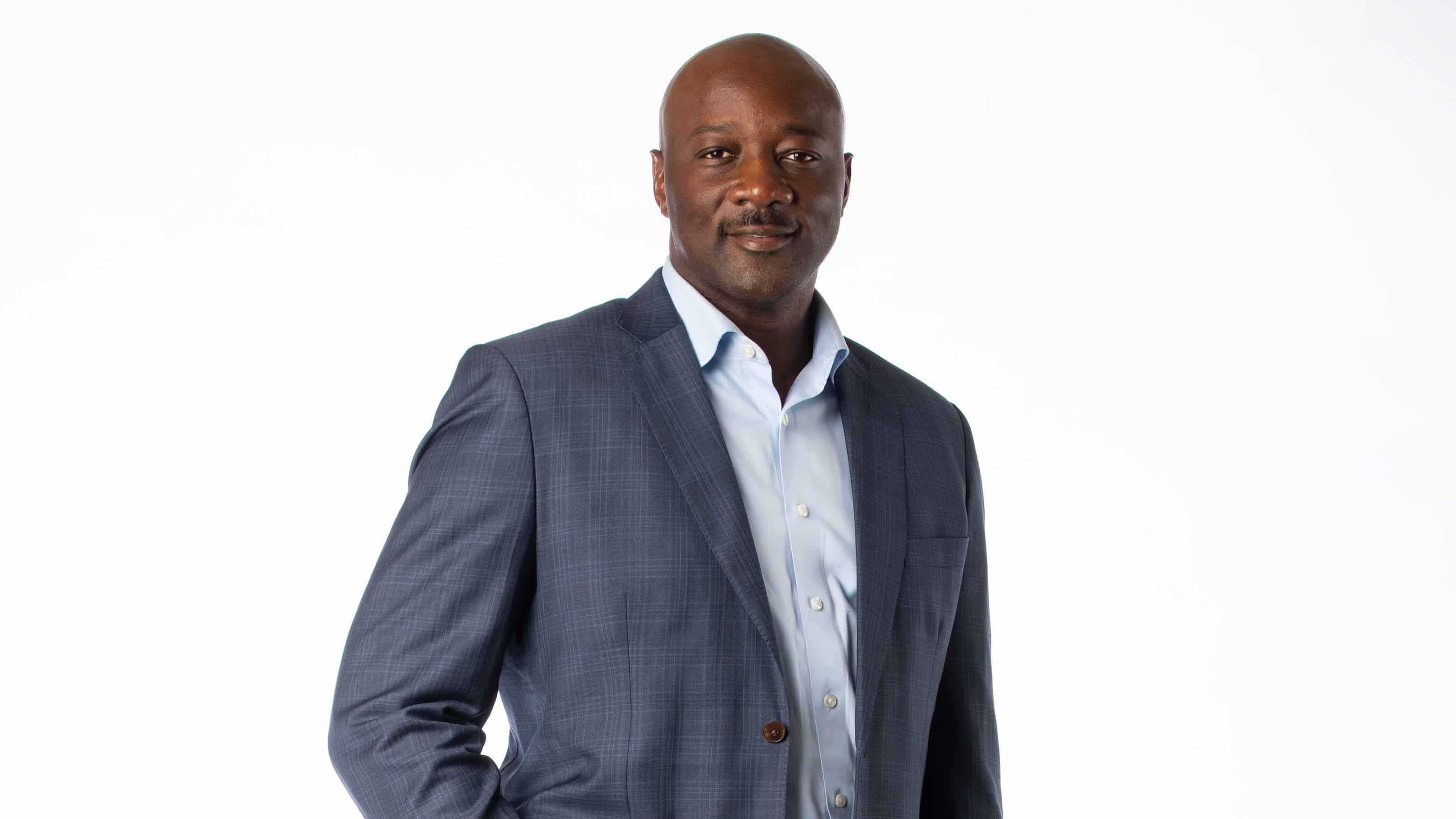What Women Want in a Financial Adviser
They’re put off by aggressive sales tactics and excessive jargon.


Profit and prosper with the best of Kiplinger's advice on investing, taxes, retirement, personal finance and much more. Delivered daily. Enter your email in the box and click Sign Me Up.
You are now subscribed
Your newsletter sign-up was successful
Want to add more newsletters?

Delivered daily
Kiplinger Today
Profit and prosper with the best of Kiplinger's advice on investing, taxes, retirement, personal finance and much more delivered daily. Smart money moves start here.

Sent five days a week
Kiplinger A Step Ahead
Get practical help to make better financial decisions in your everyday life, from spending to savings on top deals.

Delivered daily
Kiplinger Closing Bell
Get today's biggest financial and investing headlines delivered to your inbox every day the U.S. stock market is open.

Sent twice a week
Kiplinger Adviser Intel
Financial pros across the country share best practices and fresh tactics to preserve and grow your wealth.

Delivered weekly
Kiplinger Tax Tips
Trim your federal and state tax bills with practical tax-planning and tax-cutting strategies.

Sent twice a week
Kiplinger Retirement Tips
Your twice-a-week guide to planning and enjoying a financially secure and richly rewarding retirement

Sent bimonthly.
Kiplinger Adviser Angle
Insights for advisers, wealth managers and other financial professionals.

Sent twice a week
Kiplinger Investing Weekly
Your twice-a-week roundup of promising stocks, funds, companies and industries you should consider, ones you should avoid, and why.

Sent weekly for six weeks
Kiplinger Invest for Retirement
Your step-by-step six-part series on how to invest for retirement, from devising a successful strategy to exactly which investments to choose.
One way women can gain confidence as investors is to use a spouse, partner or trusted friend as a sounding board (see How to Be a Confident Investor). Add to that list a financial adviser. Reader Ann McCool writes that after being recently widowed, “The best thing I did was to find a good financial adviser. That person has helped me not only with investments but also with tax issues and estate planning.”
But finding the right match can be a challenge. Reader Lynn Hood has immersed herself in copies of this magazine, among other sources, to get up to speed on self-directed investing. Still, “I would be just fine with a good financial planner who would advise me on an hourly basis,” she writes. “But I have struggled to find that person.”
As I told Ms. Hood, Kiplinger’s generally recommends starting your search with two sources: the Garrett Planning Network, members of which are willing to work on a fee-per-hour basis, and the National Association of Personal Financial Advisors, which lists a range of fee-only financial advisers. Beyond that, however, connecting with the right counselor is a very personal decision—especially for women.
From just $107.88 $24.99 for Kiplinger Personal Finance
Become a smarter, better informed investor. Subscribe from just $107.88 $24.99, plus get up to 4 Special Issues

Sign up for Kiplinger’s Free Newsletters
Profit and prosper with the best of expert advice on investing, taxes, retirement, personal finance and more - straight to your e-mail.
Profit and prosper with the best of expert advice - straight to your e-mail.
When consulting firm Kantar asked women about the qualities they were looking for in a financial adviser, “they used a lot of terms that would be applicable to a romantic partner,” says Kantar’s Audrey Looker. “For example, they talk about the ‘intimate’ nature of the discussion and how ‘vulnerable’ they feel when laying out their financial mistakes.” What they want in an adviser, she concludes, “is more of a partnership rather than a vendor or service relationship.”
Women also differ from men in what they would like to get out of the partnership. “Men approach investing on a performance basis: How is my portfolio doing?” says Looker. “Women are interested in the end benefit: Will I be able to pay off my house, send my kids to college, retire when I want?”
Comfort zones. Aside from aggressive sales tactics, women are put off by excessive jargon. “The financial industry has made investing seem overly complex,” says Lorna Kapusta, head of women and investing for Fidelity. “Instead of talking about alpha and beta, you need to create a comfortable environment.” For example, Fidelity has cut back on TVs and tickers to make its offices quieter and more relaxed, and it has developed purse-size pamphlets on financial topics that women can easily take with them.
Women don’t necessarily prefer to work with female advisers, says Looker. “They just want someone they can connect with on a personal level.” Nevertheless, the financial services industry is going all out to attract more women to make their offices less intimidating and offer clients a variety of perspectives (see For Some Women, the Financial Services Industry May Be a Fulfilling Career Choice).
Several years ago, Fidelity changed its job description for financial advisers to deemphasize things such as finance degrees and sales goals and shift the focus to traits such as building relationships and solving problems—“skills that women excel at,” says Fidelity’s Amy Philbrook. As a result, the firm has added more than 150 female advisers, who now make up 21% of the total, up from 16% in 2016.
What really turns women off are advisers who are condescending or dismissive, or who ignore them when they come in with their husbands or male partners. By some estimates, more than 60% of female investors change advisers as a result of poor service.
One of those women is my friend Loriann, who began taking a more active role in her family’s finances when her husband developed Parkinson’s disease. “I felt incredibly patronized when my husband’s adviser began giving my husband and me mixed messages,” she says. She has since begun working with a husband-and-wife team at the same firm, and that relationship appears more promising. Says Loriann, “It’s important for me to have a seat at the table.”
Profit and prosper with the best of Kiplinger's advice on investing, taxes, retirement, personal finance and much more. Delivered daily. Enter your email in the box and click Sign Me Up.

Janet Bodnar is editor-at-large of Kiplinger's Personal Finance, a position she assumed after retiring as editor of the magazine after eight years at the helm. She is a nationally recognized expert on the subjects of women and money, children's and family finances, and financial literacy. She is the author of two books, Money Smart Women and Raising Money Smart Kids. As editor-at-large, she writes two popular columns for Kiplinger, "Money Smart Women" and "Living in Retirement." Bodnar is a graduate of St. Bonaventure University and is a member of its Board of Trustees. She received her master's degree from Columbia University, where she was also a Knight-Bagehot Fellow in Business and Economics Journalism.
-
 Dow Adds 1,206 Points to Top 50,000: Stock Market Today
Dow Adds 1,206 Points to Top 50,000: Stock Market TodayThe S&P 500 and Nasdaq also had strong finishes to a volatile week, with beaten-down tech stocks outperforming.
-
 Ask the Tax Editor: Federal Income Tax Deductions
Ask the Tax Editor: Federal Income Tax DeductionsAsk the Editor In this week's Ask the Editor Q&A, Joy Taylor answers questions on federal income tax deductions
-
 States With No-Fault Car Insurance Laws (and How No-Fault Car Insurance Works)
States With No-Fault Car Insurance Laws (and How No-Fault Car Insurance Works)A breakdown of the confusing rules around no-fault car insurance in every state where it exists.
-
 My Four Pieces of Advice for Women Anxious About Handling Money
My Four Pieces of Advice for Women Anxious About Handling MoneyTalking about money can help you take control of your finances.
-
 Money for Your Kids? Three Ways Trump's ‘Big Beautiful Bill’ Impacts Your Child's Finances
Money for Your Kids? Three Ways Trump's ‘Big Beautiful Bill’ Impacts Your Child's FinancesTax Tips The Trump tax bill could help your child with future education and homebuying costs. Here’s how.
-
 Key 2025 Tax Changes for Parents in Trump's Megabill
Key 2025 Tax Changes for Parents in Trump's MegabillTax Changes Are you a parent? The so-called ‘One Big Beautiful Bill’ (OBBB) impacts several key tax incentives that can affect your family this year and beyond.
-
 What Does Medicare Not Cover? Eight Things You Should Know
What Does Medicare Not Cover? Eight Things You Should KnowMedicare Part A and Part B leave gaps in your healthcare coverage. But Medicare Advantage has problems, too.
-
 QCD Limit, Rules and How to Lower Your 2026 Taxable Income
QCD Limit, Rules and How to Lower Your 2026 Taxable IncomeTax Breaks A QCD can reduce your tax bill in retirement while meeting charitable giving goals. Here’s how.
-
 How to Benefit From Rising Interest Rates
How to Benefit From Rising Interest RatesFinancial Planning Savers will get the best rates from top-yielding savings and money market deposit accounts at online banks.
-
 Donor-Advised Funds: The Gift That Keeps on Giving
Donor-Advised Funds: The Gift That Keeps on GivingFinancial Planning Expert guidance on how this charitable vehicle can make a difference.
-
 PODCAST: Tax Breaks for College Finance with Kalman Chany
PODCAST: Tax Breaks for College Finance with Kalman ChanyPaying for College Paying for (ever-pricier) college is a challenge that this consultant meets head on with highly specific guidance.